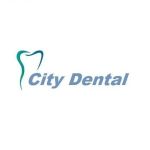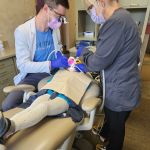
- role-of-mouthwash-in-daily-oral-hygiene
- different-types-of-mouthwash-and-their-benefits
- how-mouthwash-helps-against-plaque-and-bacteria
- mouthwash-and-its-connection-to-fresh-breath
- impact-of-mouthwash-on-gum-health
- using-mouthwash-safely-and-effectively
- expert-perspective-on-mouthwash-in-oral-hygiene
The Role of Mouthwash in Daily Oral Hygiene
When people think of oral hygiene, brushing and flossing often take center stage, but mouthwash plays an equally important supporting role. It works as a liquid tool that can reach areas your toothbrush may miss, helping wash away food particles and reduce bacteria in the mouth. For many families in the United States, incorporating mouthwash into a daily routine has become a way to feel fresher and more confident throughout the day. The importance of mouthwash in oral hygiene is not just about convenience—it is about supporting a healthier smile and preventing dental problems before they begin.
Different Types of Mouthwash and Their Benefits
Mouthwash comes in different formulations designed to target specific oral care concerns. Cosmetic mouthwashes freshen breath temporarily, making them popular for quick confidence boosts. Therapeutic mouthwashes, on the other hand, contain active ingredients such as fluoride, chlorhexidine, or essential oils, which help reduce plaque, strengthen enamel, and fight gum disease. Some are even tailored for people with sensitive teeth or dry mouth. Understanding these differences helps individuals choose the right product for their needs. At Family Dentistry Online, patients are often encouraged to select mouthwash that complements their brushing and flossing routine for optimal results.
How Mouthwash Helps Against Plaque and Bacteria
One of the key benefits of using mouthwash is its ability to fight plaque and bacteria. Plaque is a sticky film that builds up on teeth and can lead to cavities and gum disease if left untreated. Antibacterial mouthwashes disrupt the growth of bacteria, reducing plaque formation and lowering the risk of oral infections. For people who have braces, dental bridges, or implants, mouthwash provides an added layer of protection in places that are harder to clean with brushing alone. Consistent use can make a noticeable difference in long-term oral health.
Mouthwash and Its Connection to Fresh Breath
Bad breath, or halitosis, is one of the most common reasons people turn to mouthwash. While chewing gum or mints may mask odors temporarily, mouthwash works at the source by neutralizing bacteria that produce foul-smelling compounds. Many formulas include refreshing flavors like mint, eucalyptus, or citrus, which provide a cooling sensation. A college student in New York once shared how switching to an antibacterial mouthwash not only boosted his confidence before presentations but also helped him discover he had early gum inflammation—something his dentist caught during a visit. This story illustrates how mouthwash can both improve breath and reveal deeper health concerns.
The Impact of Mouthwash on Gum Health
Healthy gums are the foundation of strong teeth, and mouthwash plays a role in keeping them that way. Therapeutic rinses can reduce gingivitis symptoms by minimizing inflammation and controlling harmful bacteria. Research in U.S. dental journals has shown that people who consistently use an antibacterial mouthwash experience less gum bleeding compared to those who only brush and floss. Since gum disease can progress silently, mouthwash provides an added defense. For older adults and people with diabetes, this extra protection becomes especially important, as they are more prone to gum-related complications.
Using Mouthwash Safely and Effectively
While mouthwash offers many benefits, proper use is key to ensuring safety and effectiveness. Experts recommend swishing the liquid for about 30 seconds after brushing and flossing, then spitting it out. Drinking or rinsing with water immediately afterward can reduce its effectiveness, so it is best to wait at least 30 minutes before eating or drinking. Overuse, however, can lead to side effects like dry mouth or altered taste sensations. Choosing an alcohol-free formula is often recommended for people with sensitive gums or children. Following these steps ensures that mouthwash enhances oral hygiene without unintended downsides.
Expert Perspective on Mouthwash in Oral Hygiene
Dental professionals across the United States recognize the importance of mouthwash in oral hygiene but emphasize that it should never replace brushing and flossing. Instead, it should be viewed as an extra measure that strengthens an already solid oral care routine. Some dentists recommend mouthwash with fluoride for patients prone to cavities, while others suggest prescription-strength options for those battling gum disease. At Family Dentistry Online, experts encourage patients to see mouthwash as a customizable tool: one that can adapt to different needs, lifestyles, and health conditions. Used correctly, it can be a game-changer in maintaining a healthy, confident smile.







 Green Tree Dental4.0 (58 review)
Green Tree Dental4.0 (58 review) Jae Chae DMD4.0 (26 review)
Jae Chae DMD4.0 (26 review) Brian M. Weinberg, D.M.D., Ltd.5.0 (6 review)
Brian M. Weinberg, D.M.D., Ltd.5.0 (6 review) Doc Bresler's Cavity Busters4.0 (588 review)
Doc Bresler's Cavity Busters4.0 (588 review) Integrated Dental4.0 (189 review)
Integrated Dental4.0 (189 review) Southill Dental Group5.0 (364 review)
Southill Dental Group5.0 (364 review) The Importance of Oral Health Education During Pregnancy for a Healthy Pregnancy
The Importance of Oral Health Education During Pregnancy for a Healthy Pregnancy Best Tips for Brushing Your Teeth Properly for Healthy Gums: Essential Techniques for Oral Health
Best Tips for Brushing Your Teeth Properly for Healthy Gums: Essential Techniques for Oral Health Why Skipping Dental Checkups Can Lead to Bigger Oral Health Problems
Why Skipping Dental Checkups Can Lead to Bigger Oral Health Problems Advantages of Porcelain Dental Restorations
Advantages of Porcelain Dental Restorations How Can Diabetes Cause Tooth and Gum Problems? Preventing and Managing Oral Health Issues
How Can Diabetes Cause Tooth and Gum Problems? Preventing and Managing Oral Health Issues Healthy Habits for Promoting Good Oral Health and Hygiene: Tips for a Healthy Smile
Healthy Habits for Promoting Good Oral Health and Hygiene: Tips for a Healthy Smile